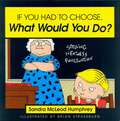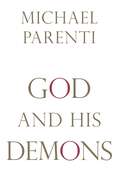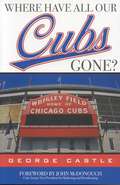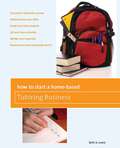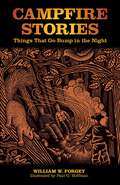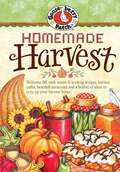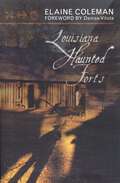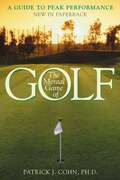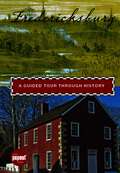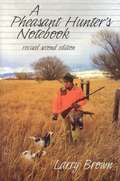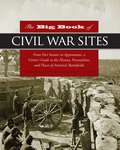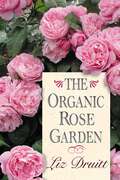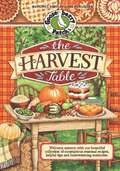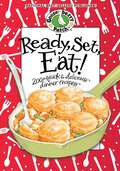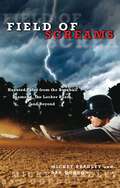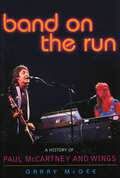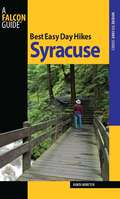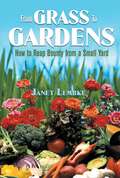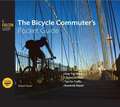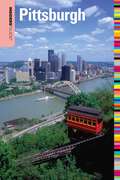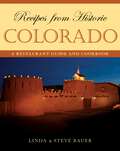- Table View
- List View
If You Had to Choose, What Would You Do?
by Sandra Mcleod HumphreyIs is wrong to sneak into the movies if your big brother says it's okay? If "everybody" is cheating on the math test, shouldn't you, too? What if telling the truth gets your best friend in trouble?It's never too early for us to begin talking to our children about values and helping them define and clarify their code of moral conduct. This is a great way for them to build self-confidence in their ability to work through everyday problems! The 25 situations presented here and the thought-provoking questions at the end of each scenario have been developed to help you talk to your child about social and moral issues in a natural and nonthreatening way. What an entertaining way to learn vital life skills!
The Dodgers Fan's Little Book of Wisdom
by Kathleen McKernanMcKernan takes the rich tradition of the Dodgers and presents the legend and lore "in brief" through quotes, humor, facts, figures, and memories.
God and His Demons
by Michael ParentiA noted author and activist brings his critical acumen and rhetorical skills to bear in this polemic against the dark side of religion. Unlike some popular works by stridently outspoken atheists, this is not a blanket condemnation of all believers. Rather the author's focus is the heartless exploitation of faithful followers by those in power, as well as sectarian intolerance, the violence against heretics and nonbelievers, and the reactionary political and economic collusion that has often prevailed between the upper echelons of church and state. Parenti notes the deleterious effects of past theocracies and the threat to our freedoms posed by present-day fundamentalists and theocratic reactionaries. He discusses how socially conscious and egalitarian minded liberal religionists have often been isolated and marginalized by their more conservative (and better financed) coreligionists. Finally, he documents the growing strength of secular freethinkers who are doing battle against the intolerant theocratic usurpers in public life. Historically anchored yet sharply focused on the contemporary scene, this eloquent indictment of religion's dangers will be welcomed by committed secular laypersons and progressive religionists alike.
Where Have All Our Cubs Gone?
by George CastleA journey throughout the world to track down former Cubs to update fans on their present-day lives and look back on their playing or managing careers. Once a Cub, always a Cub, and these former inhabitants of Wrigley Field won't soon forget their days in the Friendly Confines.
How to Start a Home-Based Tutoring Business: *Get paid to help kids succeed *Make parents your ally *Build trust with students *Set your own schedule *Market your expertise *Become the tutor everybody wants! (Home-Based Business Series)
by Beth LewisPrivate tutoring represents a billion-dollar industry in the United States, serving millions of students a year. For educators, a home-based tutoring business may represent a part-time job to supplement their teaching income, a flexible career choice after having their own children or retiring from the classroom, or a uniquely fulfilling way to work one-on-one with children who need specialized help. But other people with expertise in various fields, including those with business skills, can also capitalize on this trend. In this comprehensive guide, a longtime teacher and tutor shows them how to do so. * Get paid to help kids succeed * Make parents your ally * Build trust with students * Set your own schedule * Market your expertise * Become the tutor everybody wants!
Campfire Stories: Things That Go Bump In The Night (Campfire Books)
by William W. Forgey M.D.Original and classic stories of adventure, ghosts, and all the things that you must worry about the next time you hear something go bump in the night.
Homemade Harvest Cookbook
by Gooseberry PatchWhether you're spending sunny Autumn days among the changing leaves or looking forward to a cozy evening snuggled up by a crackling fire, Homemade Harvest has the best recipes of the season. Barbecue chicken sandwiches and fast-fix tomato-basil soup are perfect for tailgating and little goblins will love boo-tiful pumpkin cake at Halloween. No matter what size feast you're planning, tried & true favorites like Gran's stuffed turkey rolls, sweet potato casserole and cinnamon-glazed apple pie are all sure to please. We've even included recipes like peachy freezer jam for preserving autumn's fresh bounty. With a cornucopia of decorating and cooking tips tucked in, plus a chapter of crafts for handmade gifts...it's the season of homecoming and homemade goodness!
Louisiana Haunted Forts
by Elaine ColemanAlthough there are numerous books about Louisiana, little information about the forts are included and none combines the forts with ghost stories. Louisiana has five distinct regions, and all have historic forts, ranging from French rule to Spanish, Confederate, Federal, and even Privateer. Each unique story is heightened by ghostly legends. The state is already a strong tourist attraction with a $5.2 billion business yearly, 87,000 employees in tourism, and a population of over 4,000,000.
The Mental Game of Golf: A Guide to Peak Performance
by Patrick J. Cohn, PhDCombining the latest research, wide experience, and tips from tour pros, Cohn shows in this practical guide what peak performance is and how it can be achieved; how to learn the confidence that unlocks your best play; and techniques designed to improve concentration and emotional control in pressure situations.
Fredericksburg: A Guided Tour through History (Historical Tours)
by Randi MinetorMOVE THROUGH TIME AS NEVER BEFORE with this one-of-a-kind guide, which brings you face-to-face with the people and events that shaped the Battle of Fredericksburg.
A Pheasant Hunter's Notebook
by Larry BrownLarry Brown covers the pursuit of pheasants from A to Z, discussing appropriate shotguns, chokes and loads; ground tactics for hunters with and without dogs; trends in public land use and crop land management; recent shifts in bird populations and habits; and effective gun handling, just to mention a few. Particularly valuable are his strategies for hunting different kinds of cover in varying types of weather.
Big Book of Civil War Sites: From Fort Sumter to Appomattox, a Visitor's Guide to the History, Personalities, and Places of America's Battlefields
by Eric EthierThe definitive travel reference for America'smost famous—and infamous—Civil War battle sites:a tribute to the war's 150th anniversary (2011–2015)With The Big Book of Civil War Sites, history-focused travelers finally have ready access to in-depth and thorough listings of all sites associated with the major battles of a devastating war that transformed the nation. Whether for exploring the Southern states or the Eastern theater, this book provides a full range of historical background information, travel and lodging options, museums, tours, and special events.Top attractions in the North include the National Civil War Museum in Harrisburg, Pennsylvania; Gettysburg National Military Park; and Harpers Ferry National Historical Park. In the Southern states—from the Outer Banks of North Carolina to the Mississippi Delta—readers will discover the fascinating and varied world of Civil War history and read detailed accounts of battles in North and South Carolina, Tennessee, Georgia, Alabama, Mississippi, Florida, and Louisiana.The Big Book of Civil War Sites includes:* Thorough listings of all major sites, including historical background information * Full-color photographs throughout* Special features on military and civic leaders * A glossary of Civil War terminology* Directions to hard-to-find locations* Helpful listings of restaurants, lodgings, shopping, tours, and special events
The Organic Rose Garden
by Liz DruittOffers the elements of garden design necessary for an organic program, as well as companion plant ideas, cultivation and troubleshooting, fun extras such as rose recipes, and a timely organic perspective.
Knack Digital Moviemaking: Tools & Techniques to Make Movies like a Pro (Knack: Make It Easy)
by Tyler Cullen Eric WestphelingIt&’s one thing to own a digital camera or camcorder and make shaky home movies. It&’s another to record and edit a movie as good as what a professional would make. Enter Knack Digital Moviemaking. With clear, step-by-step instructions and 350 full-color photographs, this quick reference guide gives you the tools and inspiration to make exactly the films you want no matter what your subject or budget. It covers everything from choosing and using a camera to casting actors, from shooting and editing to special effects. Look for valuable information about distributing your movie online, in theaters, and in festivals. 350 full-color photos covering:Screenplays * BudgetingCameras * Lighting * Sound Actors * Shooting * Editing Effects * Animation * GraphicsGuerilla Filmmaking
The Harvest Table: Welcome Autumn with Our Bountiful Collection of Scrumptious Seasonal Recipes, Helpful Tips and Heartwarming Memories
by Gooseberry PatchAhh...autumn! Whether your favorite harvest-time activity is family hayride fun, homecoming parties with friends or Thanksgiving dinner with all the trimmings, you'll find just the right recipes in The Harvest Table.Send the kids off to school with tummies full of Mom's Buttermilk Pancakes and warm up a chilly afternoon with Creamy Corn Bisque and a basket of fresh-baked Homestyle Oatmeal Bread. Invite friends to share Maynard's Game-Day Pretzels, Kicky Cheese Spread and Hot & Sticky Maple Wings...they're all sure to be a hit! Thanksgiving will be extra memorable when you serve Delicious Bacon Turkey, Brown Sugar Glazed Ham, Rosemary-Parmesan Potatoes and Cranberry Fruit Salad. On busy days, serve up Oh-So-Good Crispy Chicken, Cheeseburger Macaroni and lots of other easy dinner recipes. Of course, any occasion will be a little sweeter when it ends with Dreamy Chocolate Fudge Pie or Cherries Jubilee Crisp...yum!You'll love all the creative ideas at the bottom of each page for fun with family & friends. We've also included sweet and touching autumn memories shared by our readers...a feature that makes our cookbooks kitchen keepsakes! Hardcover, 224 pages. (9-1/4" x 6-1/2")
Ready Set Eat
by Gooseberry PatchYummy in a jiffy! In our Ready, Set, Eat! cookbook, you'll find oodles of recipes that can be whipped up in a snap. Whether you choose freezer meals to make ahead, put your slow cooker to work or whip up complete meals in 30 minutes, your family will love these easy, tasty recipes! With handy shopping lists you'll be through the checkout in a flash too. Enjoy easy beefy pot pie, sweet potato wedges and peanut butter ice cream delight.
Field of Screams: Haunted Tales from the Baseball Diamond, the Locker Room, and Beyond
by Dan Gordon Mickey BradleyA collection of ghost stories collected from baseball players, stadium personnel, umpires, front-office folks, and fans, whichexplores the sometimes amusing and sometimes spooky connection between baseball and the paranormal.
Band on the Run: A History of Paul McCartney and Wings
by Garry McGeeAfter the breakup of the Beatles in 1971, Paul McCartney formed Wings with his wife Linda on keyboards, ex-Moody Blues guitarist Denny Laine, and American session drummer Denny Seiwell. For ten dramatic and turbulent years, the band weathered the critics, endured pot busts, survived a harrowing recording stint in Nigeria, changed drummers constantly, and produced a great deal of remarkable music. McGee's tale of one of the most successful bands of the seventies—the first book to focus exclusively on Paul's post-Beatles years-tells the stories behind the #1 hits "Listen To What the Man Said," "My Love," "Band on the Run," "Jet," "With a Little Luck," and "Coming Up." McGee reveals the band's inner dynamics and its relationship with the press and public, examining Paul's determination to pursue a new sound, the criticisms Linda initially got from fans and bandmates, and the character conflicts that kept the lineup changing. Appendices include interviews with former Wings guitarist Henry McCullough, a complete discography, a list of singles with Paul's comments on each, and rankings from the sales charts. Band on the Run also includes a trove of rare Wings promotional material—album covers, posters, ads, and candid photos of the band on tour.
Best Easy Day Hikes Syracuse (Best Easy Day Hikes Series)
by Randi MinetorNow there&’s a book that provides the best of the best: the top twenty trails for a short walk, a longer hike or an all-day adventure. Best Easy Day Hikes: Syracuse chooses the trails that lead to the most panoramic views, and that wind through the prettiest woods and meadows and into the most interesting natural areas in Onondaga, Cayuga and Madison Counties. Urban trails, walks circling lakes, and gorge paths are just some of the wonderful walking experiences you&’ll find right here in Greater Syracuse—selected for you by a lifetime upstate New York resident, professional travel writer and active area birder. It&’s time to rediscover Syracuse from the outside!
From Grass to Gardens: How to Reap Bounty from a Small Yard
by Janet Lembke"Inspires, sustains, surprises, and consoles."--National Geographic Traveler (for River Time)"The good stuff . . . Not only good history, but an engaging intellectual autobiography."--Sue Hubbell, New York Times Book Review (for Dangerous Birds)Janet Lembke loves to garden. But when she moved into her urban home in Virginia, she only had one-eighth of an acre to work with: a small front yard and a small backyard. How she traded a postage-stamp lawn for an edible cornucopia is what this enchanting book is all about. Lembke joyfully guides us on her gardening journey, in chapters called:"Tomato Haven" "The Grass Extermination Project" "Tools of the Trade" "How a Garden Grows" "Herbs" "Flowers" "Vegetables" "Outwitting the Gardener" "Wooing the Green Man, Courting Dame Kind" and "Garden Dreams" From Grass to Garden is chock-full of tips and advice for gardeners with tiny plots, including what plants are compatible with others; garden paths and seating; what vegetables and plants work best in front versus backyards; and more. She offers everything a hopeful gardener needs to reap bounty for the kitchen table from what was once a small, pesky lawn.
U.S. Navy Pirate Combat Skills
by David Wheeler Adam Reger Department of the NavyThe official U.S. Navy field manual—with more than 100 illustrations of pirate combat techniques and equipment.
Bicycle Commuter's Pocket Guide: *Gear You Need * Clothes to Wear * Tips for Traffic * Roadside Repair
by Robert HurstAs sensible as it may seem in an era when fuel prices are skyrocketing in tandem with environmental consciousness, a switch to bicycle commuting doesn’t necessarily happen overnight. Certain questions arise: Do I really need that $1,500 bike? Are Lycra shorts necessary? What about traffic rules? What to do when a tire blows? In The Bicycle Commuter’s Pocket Guide, veteran cyclist, bike commuter, professional messenger, and author Robert Hurst gives you all the answers you need for worry-free riding. The ultimate, practical miniguide to tips, tricks, technique, and gearCompact and user-friendlyFor riding to work, to the grocery store, or just around townColor photos and illustrations—plus a popout® map!
Insiders' Guide® to Pittsburgh (Insiders' Guide Series)
by Michele MargittaiFrom the top of the USX Tower to the fountain at Point State Park, explore Pittsburgh and all its offerings.
Recipes from Historic Colorado: A Restaurant Guide and Cookbook
by Steve Bauer Linda BauerSome of the best cuisine in Colorado can be enjoyed at a diversity of historic locales, from classic diners, to dude ranches, to old hotels, and even a former filling station. Please your palate as well as your appetite for historical trivia as you prepare chilled zucchini soup from Denver's Castle Marne, Spanish flan from the Twin Owls Steakhouse in Estes Park, coconut barbecue sauce from the Laramie River Ranch in North Park, or seafood gumbo from the Royal Gorge Route Railroad. A number of the recipes are historic in themselves, offering such time-honored delicacies as prime rib of buffalo from Denver's Buckhorn Exchange to The Fort in Morrison's cast iron cobbler. Intriguing stories combined with delicious recipes from some of the finest restaurants in the world are your tickets to discovering the wonders of dining in historic Colorado!
Best Hikes Near San Diego (Best Hikes Near Series)
by Lynn Goya Alexander GoyaWho says you have to travel far from home to go on a great hike? In Best Hikes Near San Diego authors Alexander and Lynn Goya detail the best hikes within an hour's drive of the greater Houston area perfect for the urban and suburbanite hard-pressed to find great outdoor activities close to home. Each featured hike includes detailed hike specs, a brief hike description, trailhead location, directional cues, and a detailed map.
